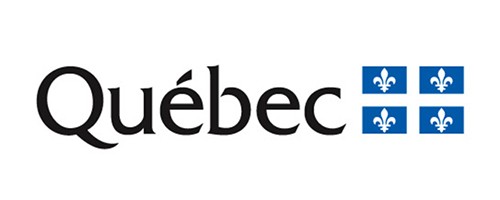Leveraging technological advances in big data, users in fields such as health care, finance, security, marketing, entertainment and education can now extract value from a growing volume of data that is hard to manage using conventional tools.
“Big data is driving the digital revolution. Over the next few years, big data will experience tremendous growth and its effect will be felt in all sectors of the economy,” said Mr. Bolduc. “Québec and Montréal have everything they need to develop cutting-edge expertise in the field and tap into a wave of future investments. That’s why Montréal International is committed to promoting and supporting this key industry by attracting more foreign investment and more talent to the region,” he added.
 “Big data is fascinating because the possibilities are endless. With a growing information and communications technology industry, highly specialized research expertise, significant data hosting capacity and a strong community of specialists and professionals, Québec has everything it takes to become a world leader in big data. And Québec International is determined to rise to the challenge. Québec is ready to unlock its creative and transformative potential to keep the momentum going and seize the opportunities of big data,” said Mr. Viel.
“Big data is fascinating because the possibilities are endless. With a growing information and communications technology industry, highly specialized research expertise, significant data hosting capacity and a strong community of specialists and professionals, Québec has everything it takes to become a world leader in big data. And Québec International is determined to rise to the challenge. Québec is ready to unlock its creative and transformative potential to keep the momentum going and seize the opportunities of big data,” said Mr. Viel.
Valérie Bécaert, Executive Director of the Institute for Data Valorisation (IVADO); François Laviolette, Director of Université Laval’s Big Data Research Centre; Frédéric Bastien, Co-founder and CEO of Mnubo; and Richard Grenier, Director of Thales Research and Technology in Québec, were among the speakers who showcased the competitive advantages that big data provides to Québec businesses and organizations big and small.
“Campus Montréal is one of the world’s top breeding grounds for operational research, data science and artificial intelligence, making it a pioneer in the field of extracting knowledge and value from mass data. IVADO, which brings together the best that Université de Montréal, Polytechnique Montréal and HEC Montréal have to offer in the field, helps businesses stay competitive through research, technology transfer and training,” explained Ms. Bécaert.
Mr. Laviolette stressed how important it is to be willing and able to mine, organize and analyze data to extract as much information as possible in order to make more informed decisions. “Businesses can leverage big data to drive scientific development and innovation. But the Centre is also helping researchers who have to deal with an avalanche of poorly structured data from various sources, as well as the industry, which is awakening to the importance of understanding how to process and analyze this type of data,” he added.
For businesses, big data is first and foremost a great opportunity to innovate, increase sales, profits and market share, and create new personalized offers.
“The big data market, which is still in its infancy in terms of the Internet of Things, will grow exponentially, transforming the entire industry. From resource optimization to productivity gains to business model transformation, the possibilities are endless!” said Mr. Bastien. “Greater Montréal is well-positioned to play a key role in the big data movement. But we must collectively invest in education programs at all levels to become leaders in this knowledge-based industry,” he added.
“Québec businesses must realize that the information we get by analyzing the data they produce is a source of wealth. Combined with a business strategy, big data can generate significant value in terms of business opportunities and economic growth. Thales is putting a lot of effort in big data. The brand new Urban Science Joint Research Unit will work with the City of Québec, Institut national de recherche scientifique, Université Laval and local SMEs to use big data at various research levels,” explained Mr. Grenier.
International best practices in the field of big data
A Profile of the Big Data Industry in Québec also reviews big data best practices in countries such as France, the Unites States, the United Kingdom and Germany, and outlines key factors for the successful development of a big data hub:
- Implementing a specific big data strategy
- Focusing on talent attraction, retention and development
- Having state-of-the-art data infrastructure and better access to data
- Building centres of excellence that focus on cooperation among industry, government and academia
- Engaging community leaders
Specific recommendations for Québec
While highlighting Québec’s research, innovation and high-tech expertise, the study also makes four recommendations to boost the province’s big data industry:
- Develop big data strategies for Québec and Canada
- Encourage Québec organizations and businesses to incorporate big data into their business processes
- Develop specialized big data training programs that reflect business needs
- Consolidate computing centres in Québec
A Profile of the Big Data Industry in Québec was prepared by Montréal International, in cooperation with Québec International and in partnership with the Communauté métropolitaine de Montréal; Canada Economic Development; Innovation, Science and Economic Development Canada; the Institute for Data Valorisation (IVADO); Québec’s Ministry of the Economy, Science and Innovation; and the City of Montréal.



